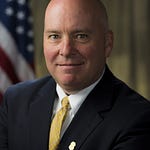Alec Crawford welcomes Bonnie Wongtrakool to the Stay podcast, a show about sustainability, technology, artificial intelligence, and you. Bonnie is a chartered financial analyst and the global head of ESG Investments and portfolio manager at Western Asset Management Co. Bonnie joins Alec to discuss environmental, social and government (ESG) focused investing during Women's History Month. Bonnie explains how she came to ESG by happenstance, as she was previously working as a mortgage portfolio manager. After expressing her interest in something outside of mortgages, her senior management at Western Asset asked her to look into ESG, as they had been hearing about the need for more sustainable investments from international clients.
Western Asset Management is a global fixed income manager with $400 billion under management. Headquartered in Pasadena, California, they also have eight other offices around the world. Western Asset Management manages all types of fixed income, including multi sector mandates, absolute return, corporate only mandates, emerging market, dedicated bank loans, municipal bonds, mortgage backed securities, and asset backed securities. Their investment horizon is long term and they adopt a fundamental value active management approach. They also prioritize ESG, incorporating it into all their mandates to assess a security's intrinsic value. In 2017, the company recognized the trend of ESG and asked the speaker to lead the initiatives in the area.
Bonnie is the global head of ESG investments and a portfolio manager at WAMCO. Her role involves leading ESG initiatives such as research, engagements, and strategy while working with other groups within the firm such as client services, legal and compliance, and information technology. As a portfolio manager, she also manages broad sector portfolios.
When it comes to ESG investing, the process is integrated into the investment process from a bottom-up perspective. This includes research analysts creating ESG frameworks for each subsector and taking a forward-looking approach instead of relying on historical reported data. Additionally, the speaker and his team also engage with management to assess the governance pillar.
Bonnie acknowledges the difficulty of obtaining ESG information from smaller private companies, such as those issuing bank loans or high yield bonds. Despite this, they are still actively looking for ways to assess these companies and factor ESG into the investment process.
Information flow and sustainability have greatly improved in recent years, particularly through the LSTA's ESG questionnaire and increased investor interest. However, the data is still relatively basic and conversations with issuer management are necessary to get more detailed information. For agency mortgage backed securities, we assess the ESG risks and opportunities and give a generally positive rating. Fannie Mae and Freddie Mac have both started issuing green and social impact bonds in response to investor demand, and we take these into account when selecting investments for our clients. When communicating our ESG strategy to investors, we emphasize the importance of sustainability, the use of proceeds, the collateral, the issuer, and the servicer.
Timestamps
0:00:02
Heading: Interview with Bonnie Wongtrakool, Global Head of ESG Investments and Portfolio Manager at Western Asset Management Co.
0:02:08
Western Asset Management's ESG Initiatives
0:04:01
ESG Investing at WAMCO: A Conversation with the Global Head of ESG Investments
0:08:57
Exploring Information Flow and ESG Ratings for Corporate and Non-Corporate Fixed Income Securities
0:12:11
ESG Reporting and Climate Finance Challenges for Sustainable Investors
0:14:28
Conversation on Sustainable Investing and ESG Investing for Public Companies
0:16:37
Exploring the Benefits of Sustainable Efforts and the Transition to Electric Vehicles
0:18:30
Sustainable Investing
Highlights
But that still leaves a lot of countries still kind of out in the cold, particularly within the developing markets. So I think that that's where you're going to need a lot more effort from things like the multilateral development banks to help bring together the policymakers, private investors bring down the cost of financing and also bring in their advisory expertise to help countries get up the curve. These developing market countries to help them develop their project pipelines, to help them look at different financial structures including things like green bonds.
I'd say the biggest challenge for sustainable investors in general is that we need to scale up climate finance. I think this has been talked about for years. They hit on this again last November at the conference of Parties Cop 27. So I think there is this critical mass of understanding that we do need to do it. However, it is so difficult. We've been talking about it for years and even now the world is really investing.. The estimate is something like only one third of what we need to address climate risk. So there's a lot that needs to happen for us to get up to the right amount. And in previous years or in the earlier years private sector had really been leading the charge and was doing the heavy lifting. Obviously that wasn't working well enough. We're not where we need to be now. We are finally seeing some support from policymakers, from lawmakers and we do see a really good model of an ecosystem in Europe where you have legislation, you have regulations working to coordinate the efforts of not just governments but also issuers and investors together.
We have a set of standard reporting that shows clients the overall ESG attributes of their portfolios, like their ESG quality, things like carbon intensity, but depending on the clients interest and level of sophistication. We also have reports that show how well their portfolio is aligned with the United Nations sustainable Development goals or the SDGs. And that would include things like their allocation to ESG labeled bonds like green bonds or sustainably linked bonds.. And then we have a lot of customized reporting for different sustainability focused clients because what they focus on can be very detailed and it can be very particular.
And both Fannie Mae and Freddie Mac have now started pulling not just green mortgages, but also mortgages with social impact. And both of those agencies are making a lot of efforts to respond to growing demand from investors for more sustainably focused issuance. And they're providing more social disclosures in particular to help investors select collateral that helps them to meet their objectives.. So we're taking those attributes into account as they're coming out and using them also as a tool to select investments with positive impact for clients that want that.
So when we're looking at these types of securities, MBS and ABS, we look at those use of proceeds, we're looking at the collateral, we're also looking at the issuer and the servicer of that collateral. And then we look at both of those facets and we make an assessment of what are the ESG risks and what are the opportunities, and we come up with an ESG rating. So if we talk in particular about agency mortgage backed securities, we think they're generally positive from a social perspective.
Read More at STAY Blog
More On: Bonnie Wongtrakool














Share this post